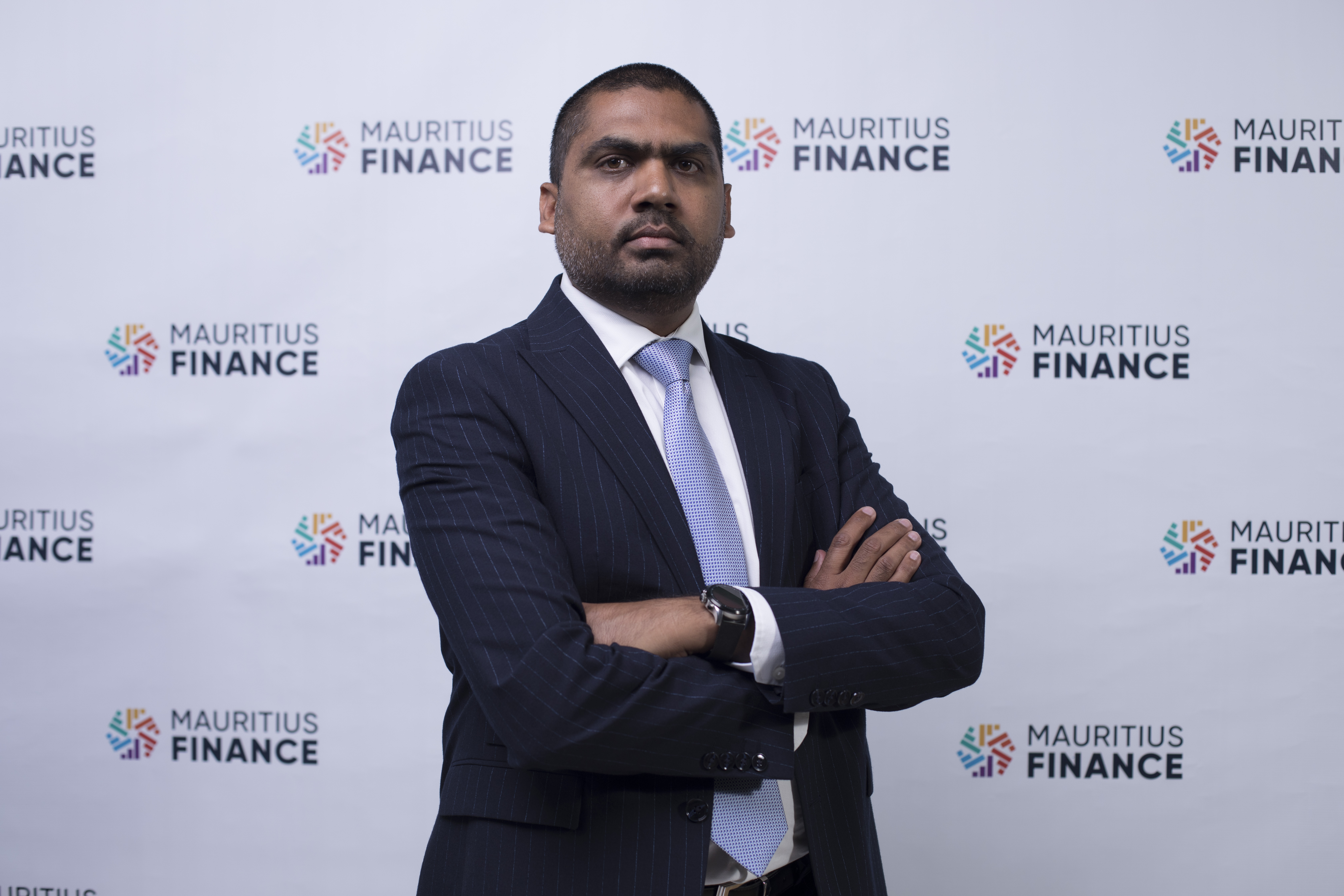Samade Jhummun, CEO of Mauritius Finance, highlights that the on-site visit of FATF representatives to Mauritius on 13-15 September represents the opportunity for Mauritius to showcase all the progress made towards full compliance with the FATF Recommendations on combating money laundering and the financing of terrorism, in view of the close collaboration between the public and private sectors.
The removal of Mauritius from the FATF list will restore investor confidence and boost the reputation of our financial centre, in his view, and will also demonstrate the resilience of the sector, paving the way for new business from current and new clients and a greater inflow of FDI into the island.

Mauritius is committed to meeting the highest international standards with regard to combating money laundering and the financing of terrorism, and has been taking steps towards full compliance with the Recommendations of the Financial Action Task Force (FATF). Where are we now, 18 months after our inclusion on the Financial Action Task Force's list of jurisdictions under increased monitoring?
In its assessment in early 2020, the Financial Action Task Force (FATF) acknowledged that Mauritius had implemented 53 of the 58 recommendations of the Mutual Evaluation Report of 2018 on technical compliance and measures to combat money laundering and terrorist financing. Still, Mauritius was placed on the FATF's list of jurisdictions under increased monitoring and thus reiterated its commitment to implement the remaining recommendations.
18 months later, we have made significant progress with regard to these 5 recommendations. Public institutions, regulators and private sector operators have given their full support and commitment to the Technical Committee set up by Government to implement the remaining points of the action plan. We have achieved tangible results: amendments to our legislative framework, the adoption of a risk-based approach to the supervisory framework and improved AML/CFT practices by private operators. Mauritius has also benefitted from the expertise of international experts, support from the European Union (EU) and other countries. The committee members had several working sessions with the FATF technical team.
The Ministry of Financial Services and Good Governance submitted several progress reports to the FATF to highlight our ongoing efforts. At the last Plenary meeting in June 2021, the FATF acknowledged the significant progress made by Mauritius in its implementation plan and announced an imminent on-site inspection. The Africa/Middle East group of the FATF will therefore be in Mauritius from September 13th to 15th this year to validate the progress made.
How did the inclusion of Mauritius on the FATF list impact upon the reputation and activities of the financial services sector?
The image of the Mauritius International Financial Centre (MIFC) has been at stake. Following the FATF assessment, the EU also included Mauritius on its list of high risk third countries. Consequently, banks had to conduct enhanced due diligence for cross border transactions. It also made it very difficult for the operators to attract new business in the current circumstances. Existing clients trust our jurisdiction and continue to operate whilst waiting for Mauritius to be eventually removed from the FATF and EU Lists.
The FATF team will be in Mauritius in September 2021 to validate the progress made. What can be expected from this mission?
The on-site inspection is far from being routine and deserves our full attention. It represents the opportunity for Mauritius to showcase all the progress made. The experts from the Africa/Middle East group of the FATF will have working sessions with the authorities, regulatory institutions and private sector operators to validate the implementation of the action plan. The expert group will then submit its report to the International Co-operation Review group, which will then make a recommendation to the FATF, ahead of its October 2021 Plenary. We remain optimistic that Mauritius will be removed from the FATF's list of jurisdictions under increased monitoring. If this milestone is achieved, then the Government of Mauritius will initiate the procedures for the EU to remove us from its list.
What would be the positive impact on the financial services sector of being removed from the FATF list?
The removal of Mauritius from the FATF list will restore investor confidence and boost the reputation of our financial centre. It will demonstrate the resilience of the sector and its ability to overcome any challenges being faced. It will attract new business from current and new clients and lead to a greater inflow of FDI. This will ultimately enhance the contribution of the sector toward GDP and employment.
How can we ensure that Mauritius is at the forefront of international best practice in the future?
We should constantly revisit our existing regulatory framework and align with international best practices of international bodies such as the EU, FATF and OECD amongst others.
One of the key goals of Mauritius Finance is to ensure that the financial services industry is sustainable and resilient. The Public-Private Sector collaboration has helped Mauritius in implementing its action plan despite the COVID-19 pandemic; this partnership should be maintained and further enhanced.
What would be your message to the international investment community?
Over the past 18 months, Mauritius has demonstrated its agility and its ability to bounce back when the country has been faced with major challenges. We remain a proven and trusted jurisdiction of excellence for the international business community.
